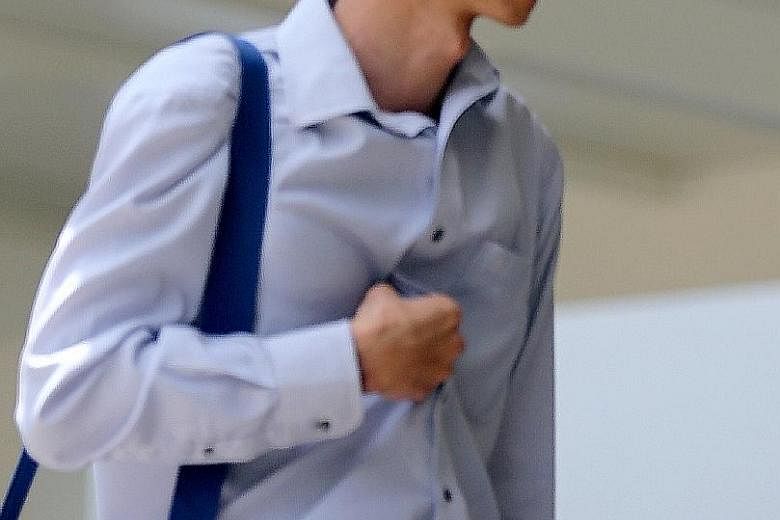A firm dealing in the sale and distribution of robotic ice-cream kiosks invested in the development of the machine and applied for a government grant under the Productivity and Innovation Credit (PIC) scheme.
But the company gave false information in its application form by naming two men, Mr Mark Lim Xian Yu and Mr Tay Hui Jie, as its employees when they were not working for the company.
For this, Robofusion Asia was yesterday ordered to pay a penalty of $60,000. Its director, Yong Tai Kok, 44, was fined $4,000 and ordered to pay a penalty of $120,000 - twice the amount of funding claimed - for his role in helping the company to make the false claim.
It was not disclosed in court how many local employees Robofusion employed when it made the application on May 23, 2013.
But investigations showed that Yong had obtained the consent of Mr Lim and Mr Tay to use their names in the PIC application form.
Robofusion made contributions to their Central Provident Fund accounts to present them as its employees when in fact they were not.
In order to qualify for the grant, Robofusion needed to meet the requirement of having three local employees, which it did not.
The company had claimed the government funding for the purchase of a $93,000 Robofusion Generation 4 Ice Cream Kiosk on Feb 28, 2013, and for a cashless payment system costing nearly $15,000 in April that same year.
The counsel for Robofusion and Yong, Ms Tania Chin and Mr Jeremy Pereira, said in mitigation that the two employees concerned were already working for Yong in his related company, 3D Matters, and he had planned to eventually hire them to work in Robofusion as well.
Yong has made full restitution.
The money that Yong obtained was injected back into the company, said Ms Chin, unlike in other cases where false purchases were declared and the offender pocketed the money personally.
A statement from the Inland Revenue Authority of Singapore (Iras) said it takes a serious view of any attempt by claimants, vendors or consultants to defraud the Government.
Offenders convicted of PIC fraud have to pay a penalty of up to four times the payout fraudulently obtained, and a fine of up to $50,000 and/or serve a jail term of up to five years.
Businesses or individuals are encouraged to immediately disclose any past tax mistakes.
Iras said that it would treat such disclosures as mitigating factors when considering action to be taken.
On top of the penalty of twice the amount of the cash payout, Yong could have been fined up to $5,000 and/or jailed for up to three years for abetting the company to give false information that was crucial.

